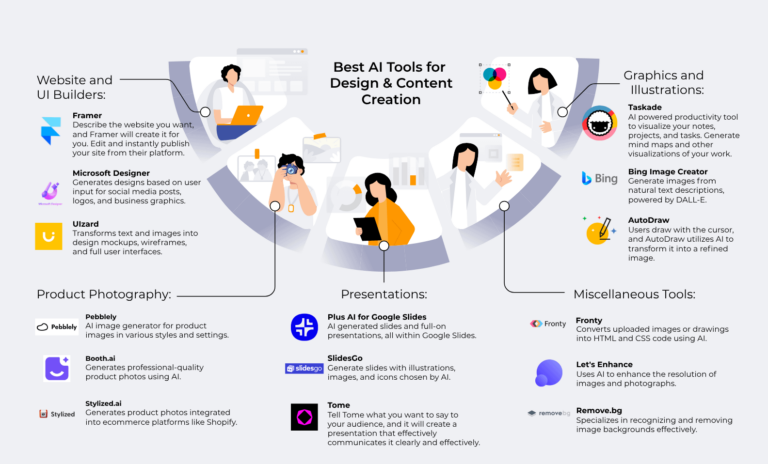Careers in Emerging Technology Fields: Navigating the Future of Work and Innovation
As technology continues to reshape the global economy, careers in emerging technology fields are becoming some of the most dynamic, rewarding, and future-proof paths available. From artificial intelligence and blockchain to green energy and quantum computing, these fields are not just transforming how we live they’re redefining the very nature of work. For students, job switchers, and forward-thinking professionals, now is the time to explore roles that are not only in demand but also positioned at the cutting edge of innovation. In this guide, we break down high-impact career directions, the skills required, and the opportunities waiting on the horizon.
AI and Machine Learning: The Brains Behind Modern Innovation
Artificial intelligence and machine learning are powering everything from predictive analytics to self-driving cars. Careers in this space range from machine learning engineers and data scientists to AI ethics specialists and research scientists. These professionals design algorithms that learn from data, enabling businesses to automate tasks, improve decision-making, and deliver personalized experiences. With AI adoption rising across finance, healthcare, education, and logistics, demand for skilled talent shows no signs of slowing. If you’re drawn to solving complex problems with data, this is a field rich with opportunity and impact.
Cybersecurity and Ethical Hacking: Defenders of the Digital Age
As digital threats become more sophisticated, so do the strategies needed to stop them. Careers in cybersecurity are expanding rapidly, with roles like security analysts, penetration testers, and cybersecurity architects taking center stage. These professionals protect sensitive information, build secure networks, and ensure regulatory compliance in industries where trust is non-negotiable. Ethical hackers, in particular, are hired to simulate cyberattacks and expose vulnerabilities before real threats do. For individuals with strong analytical thinking and a passion for protecting systems, this is a field with long-term growth and societal relevance.
Blockchain and Web3 Development: Building the Decentralized Future
Blockchain technology is more than cryptocurrency it’s a foundation for new digital ecosystems across finance, supply chains, and even identity management. Careers in blockchain include smart contract developers, crypto compliance officers, and decentralized app (dApp) engineers. Web3, the next iteration of the internet, offers a decentralized approach to data ownership and privacy. With tech giants, startups, and governments investing in blockchain infrastructure, this space presents exciting challenges and the chance to work on transformative projects at the ground level of innovation.
Green Tech and Sustainable Engineering: Innovating for the Planet
As climate change drives demand for sustainable solutions, green technology has become a major career frontier. Roles in renewable energy, carbon capture, and electric mobility are surging. From solar energy engineers to sustainability analysts and climate data scientists, professionals in this field help design technologies that reduce environmental impact and promote circular economies. With a growing focus on ESG (environmental, social, and governance) frameworks, careers in green tech offer the chance to blend innovation with purpose and make a measurable difference for future generations.
Quantum Computing and Advanced Research: Breaking the Rules of Possibility
Quantum computing is still in its early stages, but it promises to solve problems classical computers can’t touch especially in cryptography, drug discovery, and materials science. Careers here often require advanced degrees, but roles are expanding into software engineering, quantum algorithm design, and quantum cryptography. With companies like IBM, Google, and startups investing heavily in quantum labs, now is a great time to get involved. Those with a background in physics, mathematics, or computer science will find this a fascinating and intellectually rewarding path.
FAQs
Do I need a computer science degree to work in emerging tech?
Not always. While technical roles benefit from formal training, many companies also value certifications, bootcamps, and hands-on experience.
Which emerging tech field has the fastest job growth?
AI and cybersecurity are currently seeing the most rapid expansion due to global digitization and rising security threats.
Are remote jobs common in these fields?
Yes. Many roles, especially in software, data science, and cybersecurity, are fully remote or hybrid, offering flexibility and global reach.
Can I transition into emerging tech from another industry?
Absolutely. Many professionals pivot into tech roles using transferable skills, online courses, and certifications like AWS, CompTIA, or Coursera credentials.
What skills are most in demand across all emerging tech careers?
Critical thinking, data analysis, programming (especially Python and JavaScript), cloud computing, and understanding of AI principles are widely sought after.

